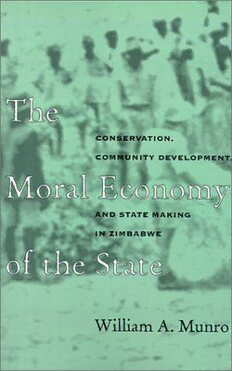
Moral Economy Of The State: Conservation, Community Development, & State-Making in Zimbabwe (Ohio RIS Africa Series) PDF
510 Pages·1998·1.393 MB·English
Most books are stored in the elastic cloud where traffic is expensive. For this reason, we have a limit on daily download.
Preview Moral Economy Of The State: Conservation, Community Development, & State-Making in Zimbabwe (Ohio RIS Africa Series)
Description:
The Moral Economy of the State examines state formation in Zimbabwe from the colonial period through the first decade of independence. Drawing on the works of Gramsci, E. P. Thompson, and James Scott, William Munro develops a theory of "moral economy" that explores negotiations between rural citizens and state agents over legitimate state incursions in social life. This analysis demonstrates how states try to shape the meanings of citizenship for agrarian populations by redefining conceptions of the public good, property rights, and community membership.The book's focus on the moral economy of the state offers a refreshing perspective on the difficulties experienced by postcolonial African states in building stronger state and rural institutions.
See more
The list of books you might like
Most books are stored in the elastic cloud where traffic is expensive. For this reason, we have a limit on daily download.
